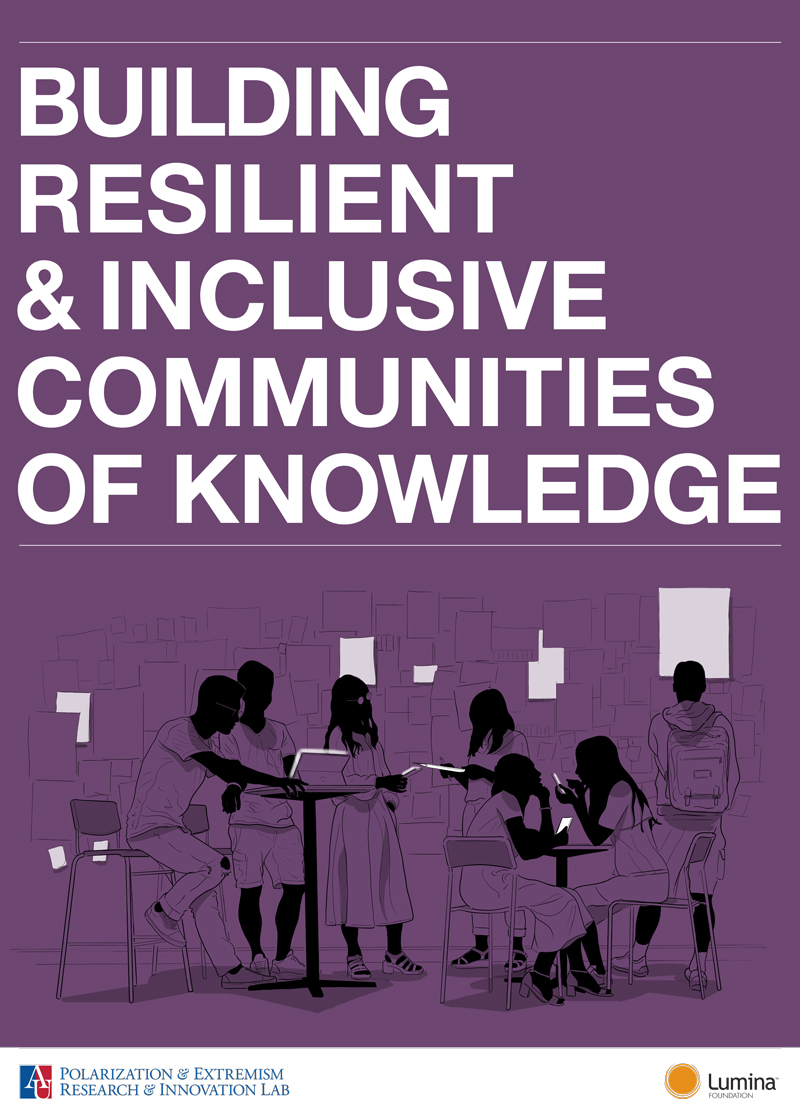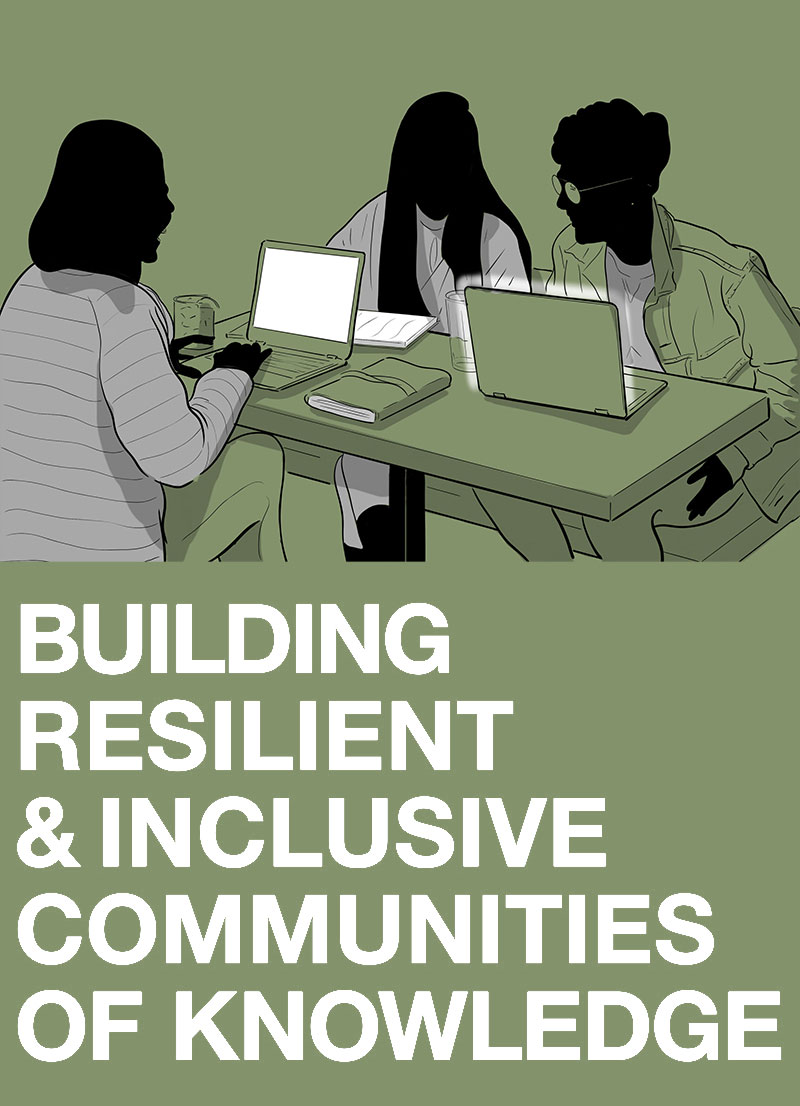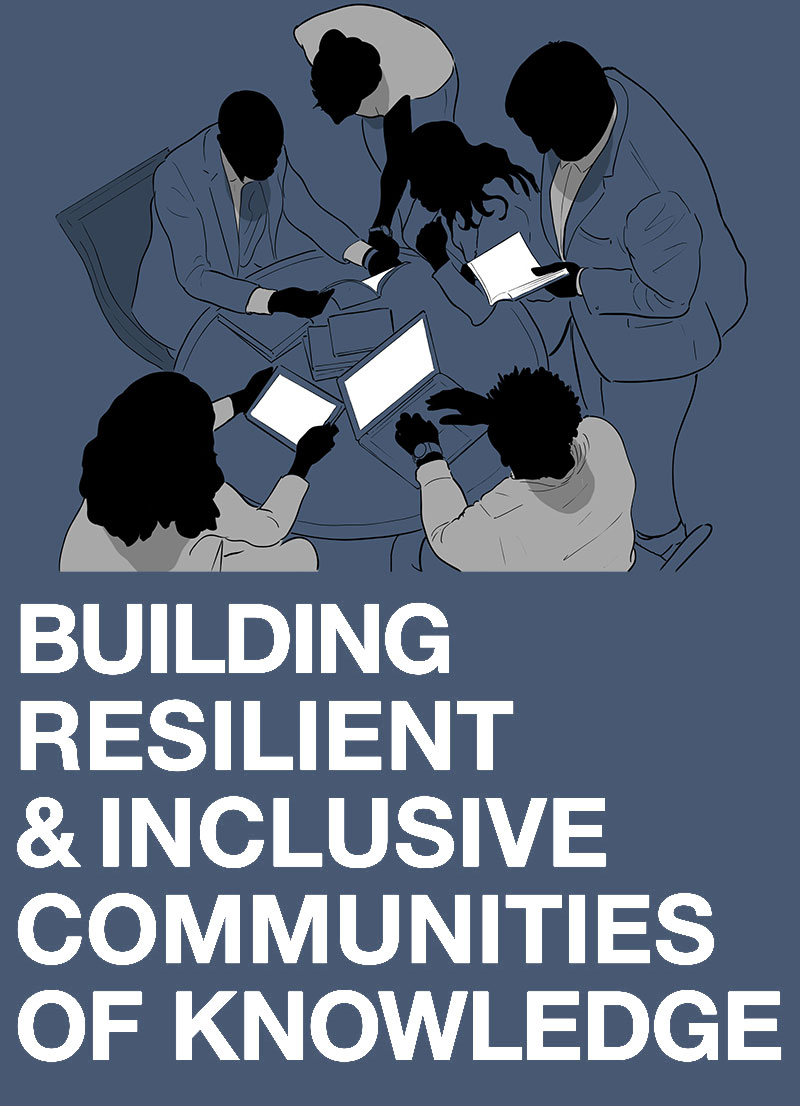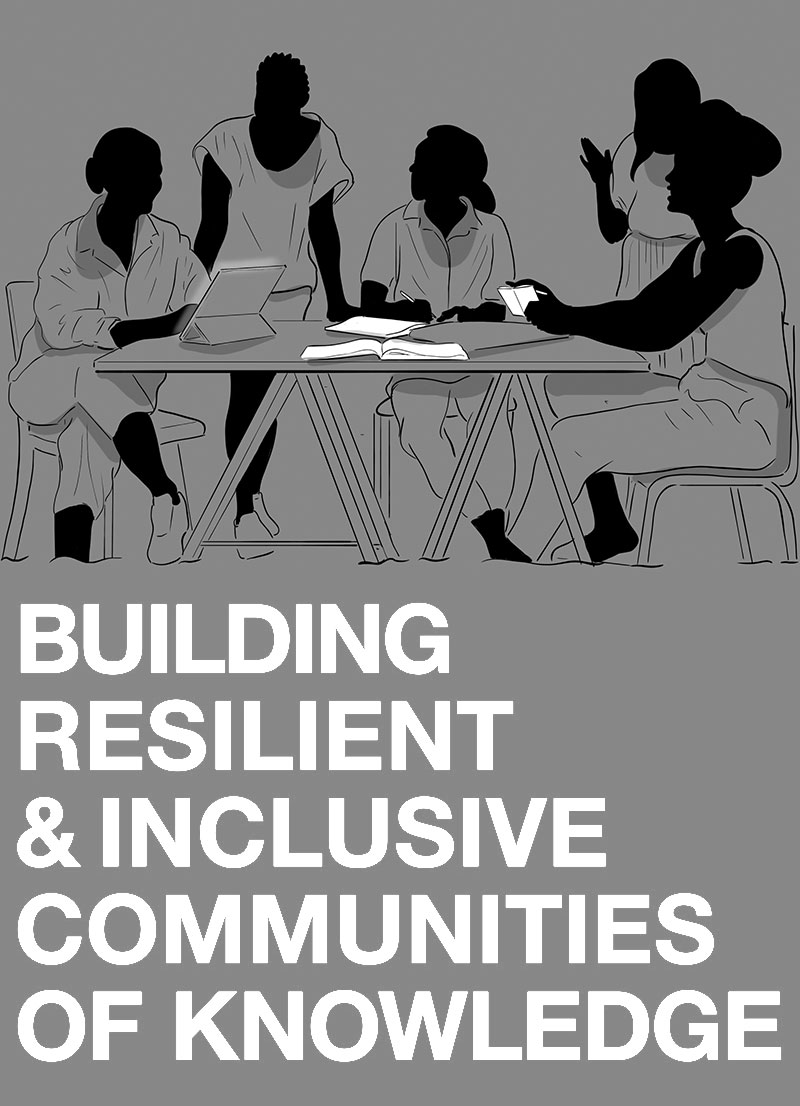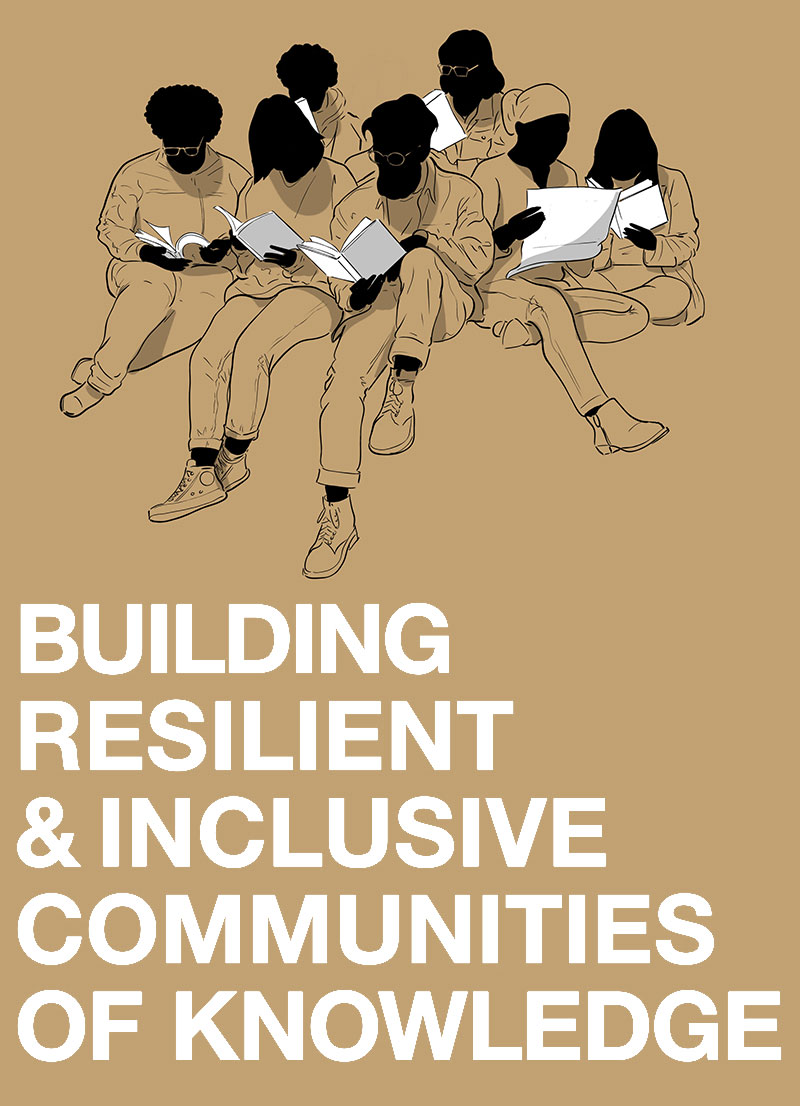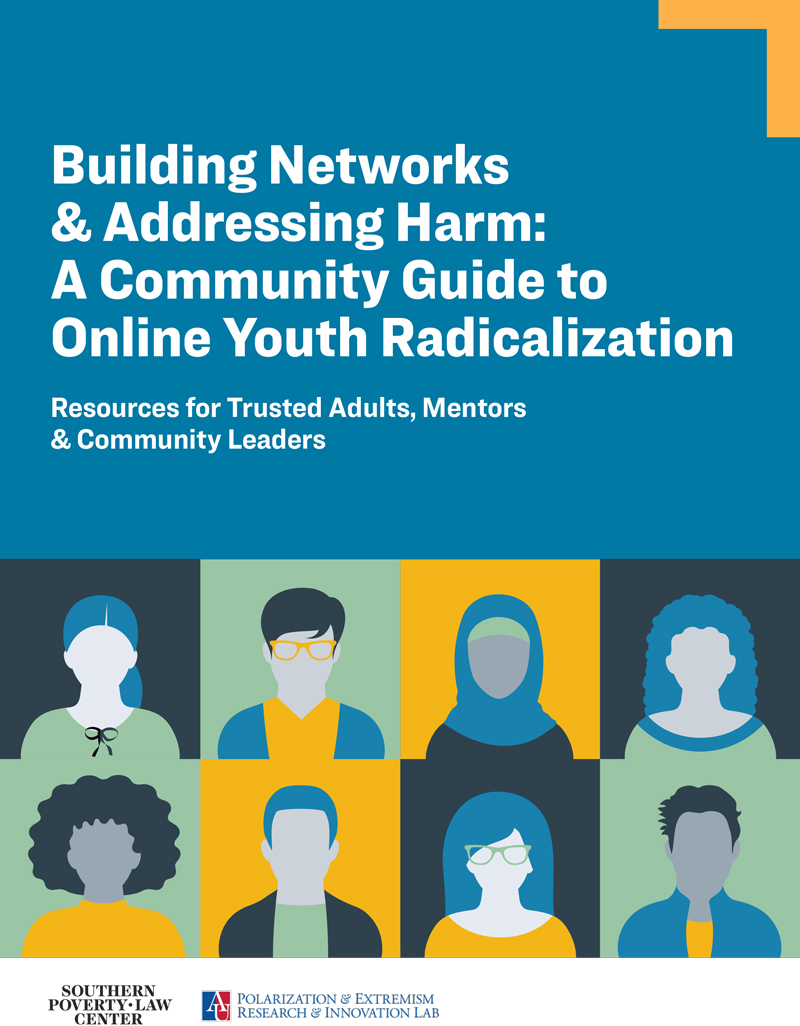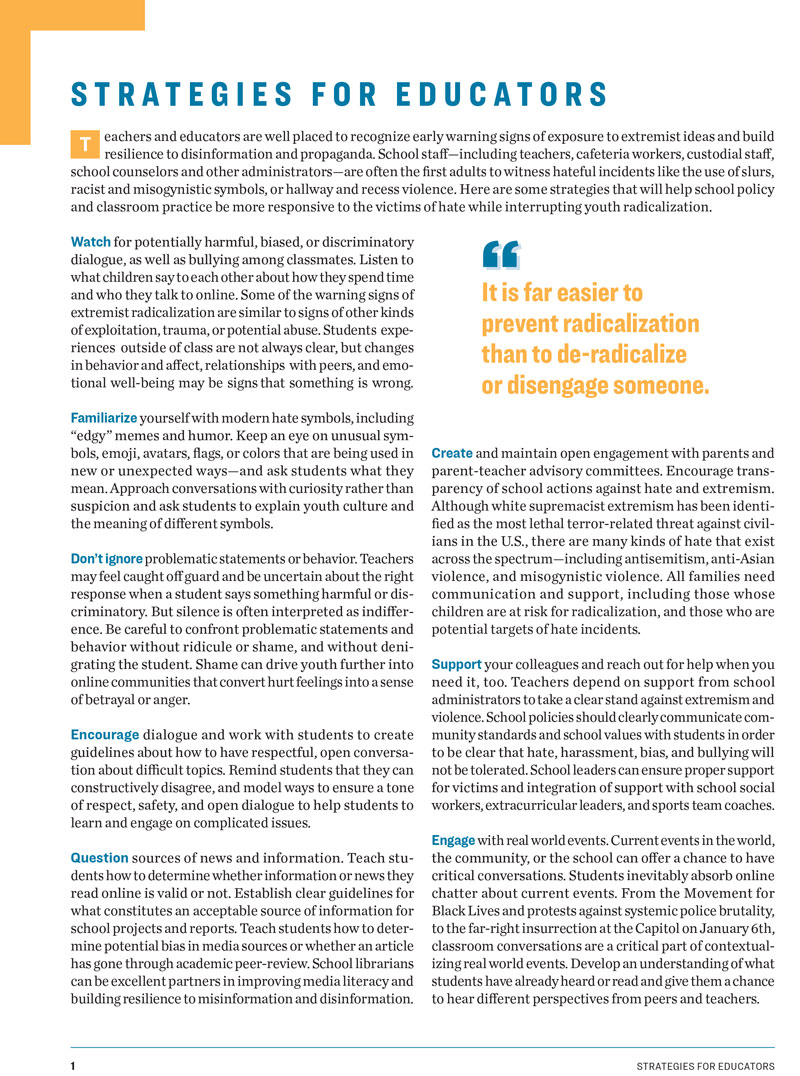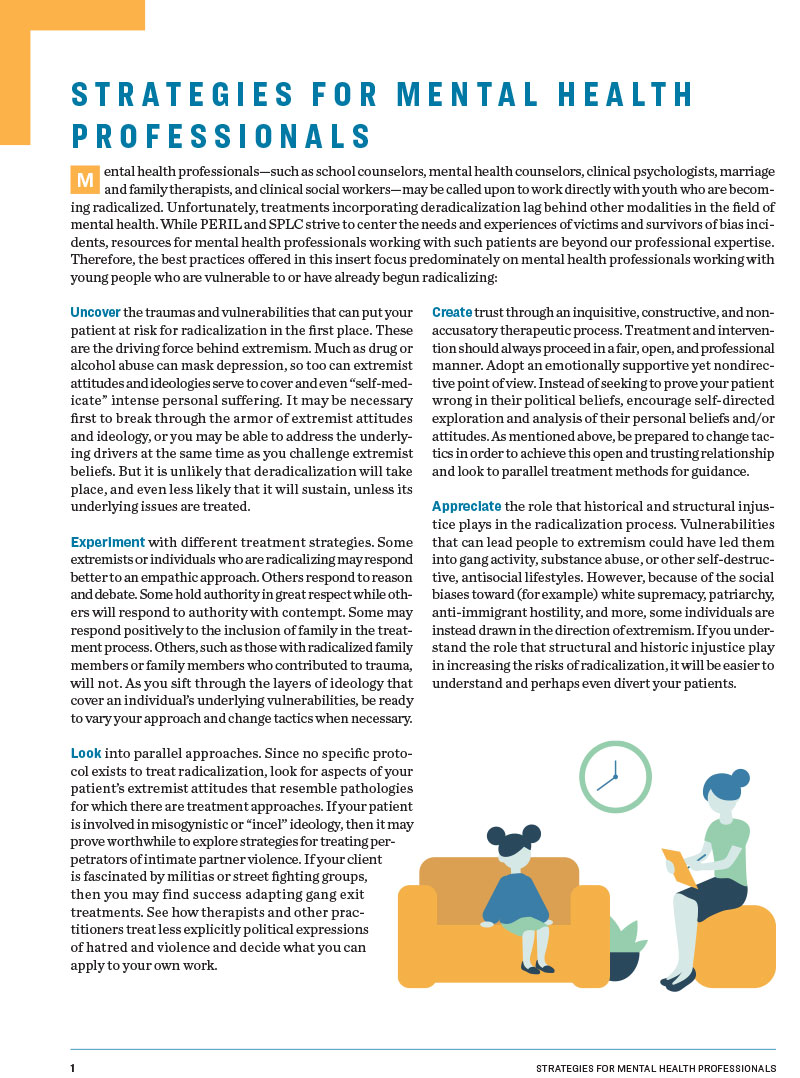Promote media literacy and civics education, including the history of supremacist movements in the U.S., as part of curricular and learning objectives at all levels of formal and informal learning.
Support student-led advocacy groups in schools, including groups that focus on anti-bullying, healthy relationships, anti-violence, and anti-misogyny and anti-white supremacist initiatives.
Get informed about digital and online ecosystems that are steeped in toxic and harmful content, alongside red flags and warning signs of radicalization, and how extremist groups recruit youth on apps, online platforms and internet forums.
Create networks of fellow professionals and advocate for and are involved in better referral systems to help connect people who are expressing beliefs in conspiracy theories, supremacist and extremist ideologies with resources for help.
Build communication strategies to communicate with parents, colleagues, and trusted adults like coaches and extracurricular leaders who create a network of supportive adults in the lives of youth to address these ideas calmly, disrupt the radicalization process, and off-ramp individuals before it is too late.
